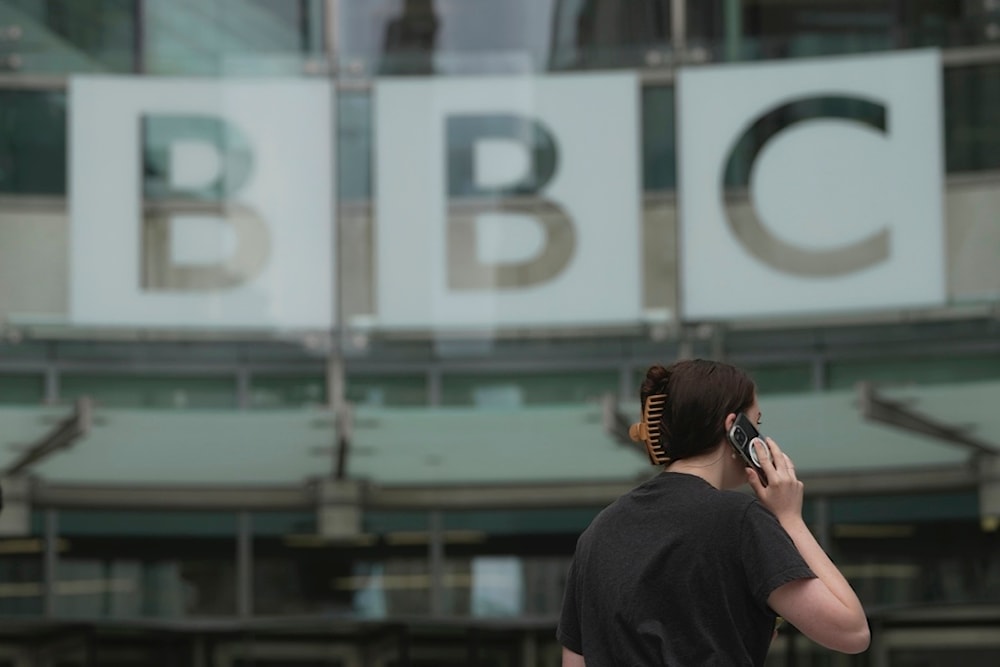How MSM ignores UK Military support for Israelis: Declassified
A stark comparison emerges when examining media attention to Ukraine versus "Israel," Des Freedman writes for Declassified UK.
-

A woman walks outside the BBC Headquarters in London, Tuesday, July 11, 2023. (AP)
An analysis written by Des Freedman for Declassified UK explores how critiques of mainstream journalism have intensified in recent months, questioning its commitment to holding power accountable, especially in the context of the ongoing war on Gaza.
Despite lofty editorial guidelines that claim to uphold scrutiny and impartiality, major news outlets have been accused of perpetuating biases and maintaining a steadfast narrative that supports "Israel's" actions under the guise of self-defense.
The BBC, a stalwart of British journalism, faced scrutiny for echoing governmental press releases verbatim regarding UK military deployments in support of "Israel."
Critics argue that such coverage not only normalizes but also legitimizes military interventions that exacerbate the conflict.
This echoes sentiments expressed by AG Sulzberger of the New York Times, who stresses journalism's role in exposing injustice, a role many believe is conspicuously absent in mainstream Gaza coverage.
"Journalists hold power to account by exposing corruption and abuse. Journalists reveal injustice and inequality," he said.
Read more: Declassified UK uncovers UK 60 flights to 'Israel' during war on Gaza
A stark comparison emerges when examining media attention to Ukraine versus "Israel." A Nexis database search revealed a staggering disparity: while Ukraine garnered 157 stories related to UK military assistance, "Israel's" involvement barely registered with only a handful of mentions.
This discrepancy points to accusations of selective reporting, suggesting that discussions about UK military aid to "Israel" are deliberately sidelined in favor of more politically palatable topics.
Moreover, the issue extends beyond mere oversight; it's about what stories are actively ignored.
Revelations by investigative outlets like Declassified UK about British military support for "Israel," including covert operations and training programs, have largely been confined to niche publications.
This censorship by omission, critics argue, shields the complicity of British establishments in potential war crimes, drawing attention away from uncomfortable truths.
Even the coverage of arms sales to "Israel", totaling £576 million since 2008, remained subdued until tragedy struck close to home: the killing of British aid workers in an Israeli attack prompted a sudden spike in media interest.
This belated focus, however, appeared more reactive to public outrage than a genuine investigative pursuit of ethical implications.
Read more: 100+ Britons in Israeli forces, illegal settlements: Declassified UK
In sum, while mainstream media prides itself on holding power accountable, its handling of the Gaza genocide raises significant doubts about its commitment to unbiased reporting and investigative journalism.
Critics contend that by neglecting critical aspects of UK-"Israel" military ties and echoing official narratives, major outlets contribute to a narrative that obfuscates rather than illuminates the realities of the conflict.

 3 Min Read
3 Min Read








